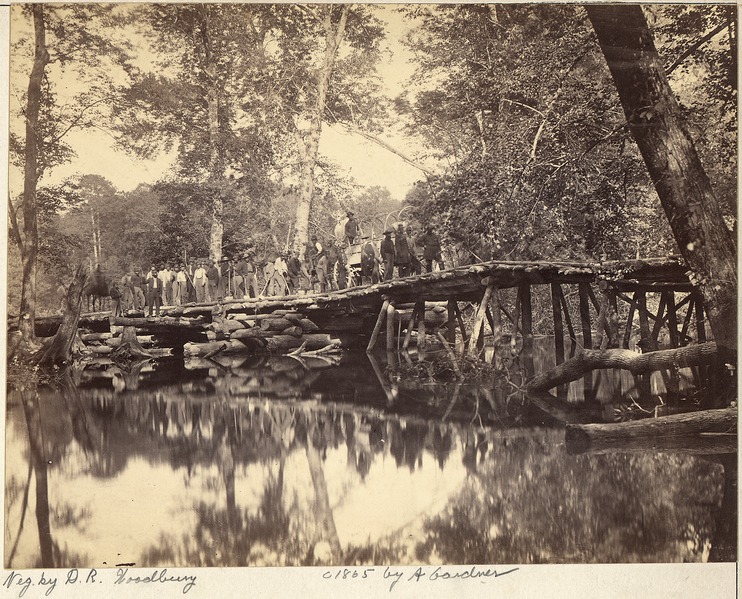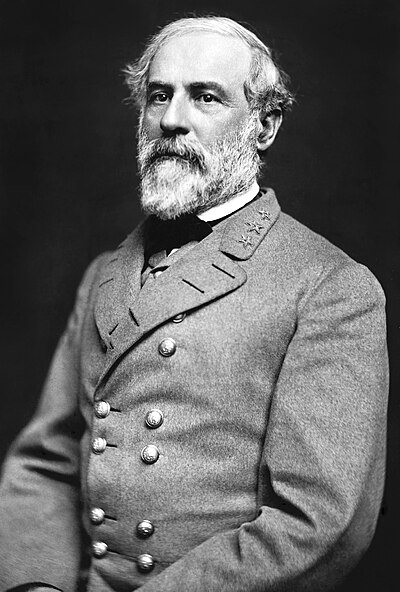After retreating from the Peninsula Johnston and McClellan stopped just short of Richmond and settled in settled positions. McClellan's army was divided by the Chickahominy River. Much of the area was swampy, and when the army first arrived the river could easily be crossed. However, rain began to fall and the swamps turned into rivers. Sluggish streams now became sizable barriers to army movement. Joseph E. Johnston was looking for an opportunity to attack. In a few months without having fought a major battle he had been maneuvered by McClellan from northern Virginia to the gates of Richmond without having fought a major battle. Johnston decided he would change that. At first an attack was made more necessary because McDowell's troops was going to be brought down from Fredericksburg to join McClellan, however this was called off to make an attempt to capture Stonewall Jackson in the valley, giving Johnston a few more days to prepare. Johnston was ready on May 30th, and orders were distributed for a march the next day.
 |
| Chickahominy River |
On the face of it, the plan seemed rather simple. McClellan's forces to the north of the river would be distracted by skirmishing while most of the army converged by several roads on the Federal troops south of the river. However, coordinating army movements by various roads was very difficult, and Johnston's subordinates would find plenty of room for failure on their march on May 31st. Johnston's orders were badly written, and left plenty of room for mistakes. Longstreet decided to switch the road his men would march on, which delayed the advance greatly.
The battle finally opened after 1 pm, five hours after when Johnston had planned. But even then all the Confederates had not gotten into position. D. H. Hill had simply gotten impatient so he ordered his men forward without the others in place. Hill's men charged the earthworks, and finally were able to break through the Union line, which was held by inexperienced troops. Hill's men were reinforced and they attacked the second Union line. With hard fighting they were able to drive back the Federals, but Union reinforcements had arrived. Edwin Sumner was ordered to cross with his crops to the south side of the river, but the engineers said that the one bridge remaining, Grapevine Bridge, was about to collapse and a crossing was impossible. “Impossible!?” Sumner said, “Sir, I tell you I can cross! I am ordered!” Sumner was an old soldier and used to obeying orders, and this day he was able. The bridge did not break until after he got his men across.
 |
| Franklin's corps retreating |
Because of an acoustic shadow produced by the lay of the land Johnston did not hear the sound of the battle opening. However, Longstreet eventually told him that the battle had begun. Towards evening he arrived on the field, instructing his subordinates in preparation for the morrow's battle. As he rode through the twilight he was struck in the shoulder by a bullet. Almost immediately a shell burst overhead, and Johnston was hit again with a fragment. He fell unconscious from his horse and was carried to the rear. On the way back he encountered Jefferson Davis and Robert E. Lee, who had rode out from Richmond to see the battle. Davis told Johnston of his regret of his wounding, and began to think of someone to replace him. The second in command, G. W. Smith assumed command, but when Davis met with him he knew he would not do. Smith had no plans and could not take the strain of army command. He became sick and in a few days would leave the army. On their way back to Richmond, Davis told Lee that he would appoint him the new commander of the army. This choice would not be without controversy. Lee had been one of the nation's foremost soldiers before the war, but his standing had been somewhat tarnished by his campaign in West Virginia in which he had been able to mount a successful attack on the Union forces. His men called him Evacuating Lee and King of Spades. Jefferson Davis however was still his friend and he had confidence in him. As time went on it was apparent to everyone that this change of command was the most important result of the Battle of Seven Pines.
 |
| Robert E. Lee |




0 comments:
Post a Comment